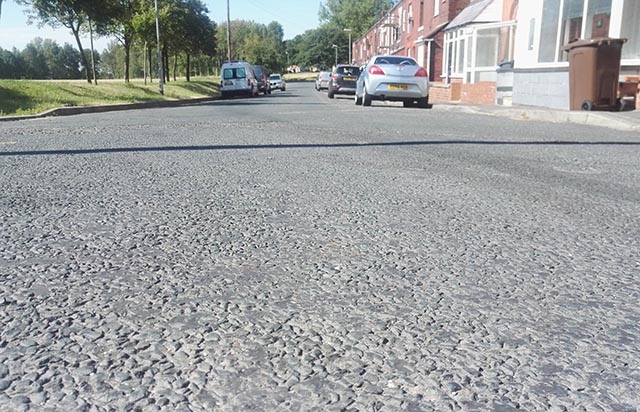Why the gritters are out in a heatwave
Date published: 03 July 2018

The hot weather makes road surfaces soft and sticky, leading to them breaking up
The current heatwave has seen temperatures topping 30C in many parts of the country.
This has caused some roads to melt.
With the Met Office predicting that temperatures for July and August could be hotter than average more roads could find that more road surfaces are getting soft and sticky.
Most roads will not begin to soften until they hit a temperature of around 50C.
However, even a sunny day in the 20Cs can be enough to generate 50C on the ground as the dark asphalt road surface absorbs a lot of heat and this builds up during the day with the hottest period between noon and 5pm.
With temperatures regularly reaching the high 20Cs, the bitumen in some road surfaces may soften and rise to the top.
This makes the road surface sticky and more susceptible to pressure loads from heavy vehicles resulting in surface ridging and rutting.
The response from local highway authorities is to send out the gritters to spread granite dust to absorb the soft bitumen and so stabilise the road surface and make it less sticky.
“Drivers may be bemused to see the gritters out in the summer when they are usually spreading grit and salt during the winter”, said Howard Robinson, chief executive of the Road Surface Treatments Association.
“However, this is effective standard practice for keeping a road surface safe during extreme prolonged hot temperatures.”
He continued: "Asphalt is a bit like chocolate - it melts and softens when it's hot and goes hard and brittle when it's cold - it doesn't maintain the same strength all year round.”
Following a heatwave in 1995, the road industry introduced a new asphalt specification introducing the use of polymer modified binders in hot rolled asphalt (HRA).
These polymers raise the asphalt road surface softening point to around 80C which prevents it from softening under extreme hot weather.
Other asphalt products such as thin surface course systems also normally contain polymer modified binders.
However, such modified asphalts tend to be more expensive and are generally only used on heavily-trafficked roads.
Robinson estimates that less than 5% of all the UK’s road surfaces contain polymer modified asphalt.
On the other hand most surface dressings which are used to seal road surfaces and restore skid resistance nowadays predominantly contain polymer modified binders which will resist softening during periods of hot weather.
“Localised melting of some roads is not surprising during this heatwave but they can be quickly treated and revert back to normal once temperatures decline,” said Robinson.
Most Viewed News Stories
- 1Police issue appeal following fatal collision on Asda car park in Shaw
- 2Two arrested following early morning raids in Royton
- 3Plans proposed to turn former Clough Manor hotel into 'multi-service hub'
- 4The ‘rescued’ historic building that’s sprouting trees
- 5Five arrested as part of ongoing Derker drugs probe




